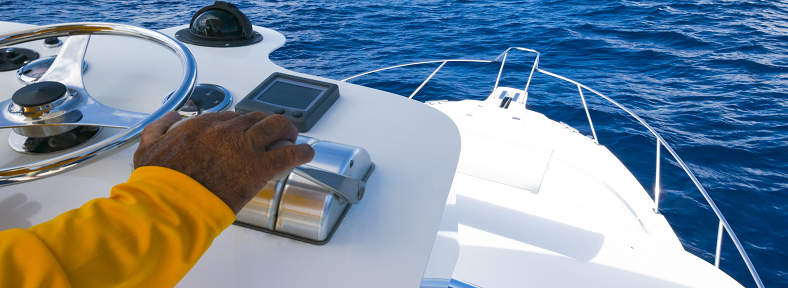
Stock image.
Atlanta—The Georgia Court of Appeals Wednesday concluded three children’s claims for emotional distress stemming from a deadly boating accident could go forward, but it limited those claims only to what involved the children's own physical injuries. Malibu Boats LLC f/k/a Malibu Boats Inc., et al. v. Batchelder, et al.
In an opinion written by Judge William Ray, the appellate court upheld a trial court finding that a boat's wake that struck Kayla, Zack, and Josh Batchhelder during a 2014 accident that killed seven-year-old Ryan Batchelder was arguably sufficient to claim emotional damages under Georgia’s impact rule.
That rule, according to the appellate court, requires a “physical impact” that causes physical injury in order to seek emotional damages from that injury.
“Because a 'physical impact' may be sustained in virtually innumerable ways, the facts of this case fall within a broad spectrum bounded on the one side by cases in which evidence of physical impact was clear, and on the other by cases in which it was apparent no physical impact occurred,” Ray wrote.
Ryan Batchelder died when he was struck by a boat propeller after falling from a boat that was taking on water during a family vacation at Lake Burton, in Rabun County, Georgia. The Batchelder family sued Malibu Boats LLC, the boat’s manufacturer.
The three surviving children seek emotional damages, claiming they were struck by water from the boat’s wake as the boat’s operator turned the craft to keep it from foundering.
In upholding the trial court’s decision as to the physical impact of the wake, the appellate court reasoned that Georgia law has regulated the potentially harmful effects of water in other areas.
“[W]e cannot say at this stage of proceedings, as a matter of law, that a watercraft’s contact with water, including a collision with a wall of water such as a wake, which results in swamping due to another’s negligence, does not satisfy the first element of the impact rule,” Ray wrote.
The court also upheld the trial court’s finding that the surviving children’s alleged injuries, including a scraped stomach, bruised shin, and vomiting and hyperventilation, were enough to arguably satisfy the “physical injury” element of the rule.
“Despite Malibu’s arguments to the contrary, it is not dispositive that the minors did not seek treatment for these injuries or that these injuries were slight,” Ray wrote. “Furthermore, it is of no consequence that the water itself did not inflict injury upon the minor plaintiffs.”
Importantly, however, Ray wrote that the trial court erred in finding that the children could recover emotional damages flowing from the “overall traumatic scene.”
The appellate court noted that the Georgia Supreme Court has carved out only one exception to the impact rule’s limitation on emotional damages stemming from physical injuries. That exception applies solely to parent-child relationships.
“It is clear that the minor plaintiffs’ claims are not included within the narrow… exception,” Ray wrote, “and we are not authorized to expand the exception in this case.”
Email Arlin Crisco at acrisco@cvn.com.
Related Information
CVN covers trials in negligence cases in Georgia and across the country.
Not a subscriber?
Learn how you can watch our unrivaled trial video library for $99/month.





